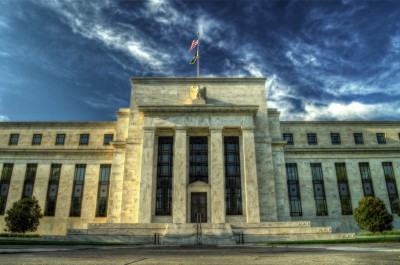More Troubled Banks in America

All Global Research articles can be read in 51 languages by activating the Translate Website button below the author’s name.
To receive Global Research’s Daily Newsletter (selected articles), click here.
Click the share button above to email/forward this article to your friends and colleagues. Follow us on Instagram and Twitter and subscribe to our Telegram Channel. Feel free to repost and share widely Global Research articles.
***
As I reported at the time, the banking crisis is not limited to Silicon Valley Bank. Silicon Valley Bank’s failure was followed by the failures of New York Signature Bank and First Republic Bank of San Francisco. Now three more banks have had their stock prices collapse–Western Alliance, PacWest Bankcorp, and Metropolitan Bank.
As I have emphasized, the Federal Reserve’s higher interest rates are the cause of the bank troubles. The decade of zero interest rates left banks with portfolios of low interest rate assets on their balance sheets. As the Federal Reserve raised rates, these assets declined in value. Depositors saw that the banks were technically insolvent and withdrew funds. Others withdrew funds because they can now get higher interest rates from money market funds.
Banks losing deposits are subject to runs. Expecting the worse, shareholders sell their holdings of the banks’ stocks. As the banks lose market value, troubles increase.
The Federal Reserve is causing a banking crisis, because the Federal Reserve imagines that the inflation is a monetary inflation and not an inflation resulting from supply disruptions caused by Covid lockdowns and Russian sanctions. If the Federal Reserve succeeds in throttling the economy with higher interest rates, supply problems are aggravated by reductions in production. In other words, as usual, the Federal Reserve’s policy is counterproductive.
I have always been amazed that Americans look to government entities for solutions when incompetence is the main attribute of government.
*
Note to readers: Please click the share button above. Follow us on Instagram and Twitter and subscribe to our Telegram Channel. Feel free to repost and share widely Global Research articles.
Paul Craig Roberts is a renowned author and academic, chairman of The Institute for Political Economy where this article was originally published. Dr. Roberts was previously associate editor and columnist for The Wall Street Journal. He was Assistant Secretary of the Treasury for Economic Policy during the Reagan Administration. He is a regular contributor to Global Research.

